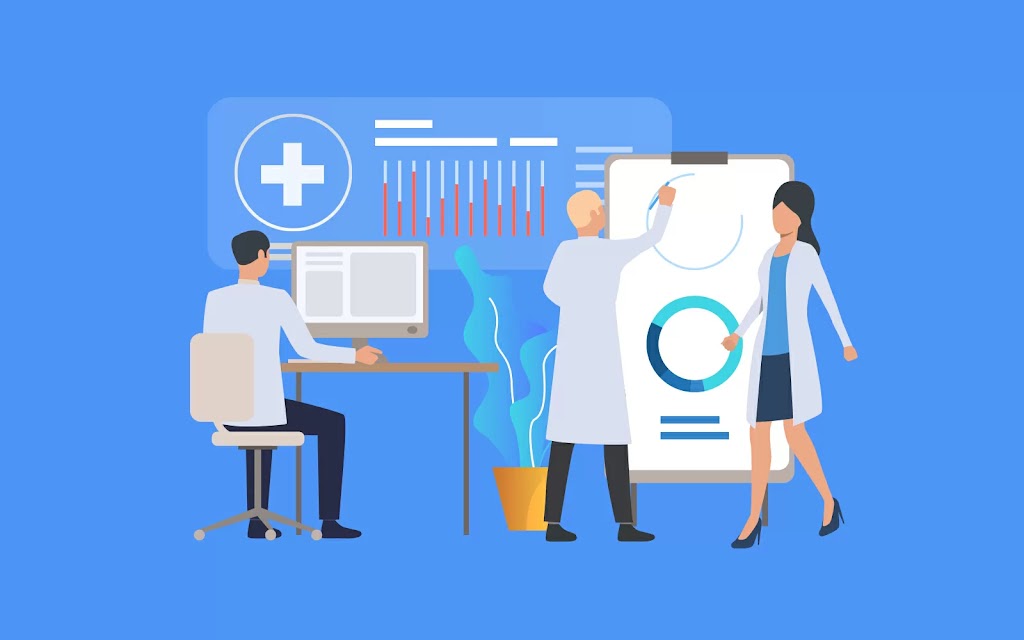Introduction
Medicine plays a vital role in addressing global health challenges and finding sustainable solutions. With advancements in technology and increased awareness, the world has witnessed significant progress in healthcare. However, several obstacles still hinder the achievement of optimal healthcare for all. This article explores some of the key global health challenges we face today and highlights potential solutions.
The Burden of Non-Communicable Diseases
Non-communicable diseases (NCDs) have become a major global health concern, surpassing infectious diseases as the leading cause of death worldwide. These chronic conditions, including cardiovascular diseases, cancer, diabetes, and respiratory disorders, pose significant challenges to healthcare systems worldwide. The prevalence of NCDs is increasing due to factors like sedentary lifestyles, unhealthy diets, tobacco use, and alcohol consumption.
To address this challenge, governments and healthcare organizations must prioritize preventive measures. Promoting healthy behaviors through public awareness campaigns is crucial. Encouraging individuals to engage in regular physical activity, adopt nutritious diets, and avoid harmful habits such as tobacco and excessive alcohol consumption can significantly reduce the burden of NCDs. Additionally, healthcare systems should focus on early detection through regular screenings and provide efficient treatment options to manage these diseases effectively.
Infectious Diseases and Global Health
While progress has been made in combating infectious diseases, they still pose significant threats to global health. Pathogens continually evolve, and emerging infectious diseases, such as COVID-19, remind us of their potential impact. The rapid spread of infectious diseases across borders highlights the need for global cooperation in addressing these challenges.
Strengthening healthcare systems is crucial to effectively respond to infectious diseases. Investments in research and development can lead to the discovery of effective treatments and vaccines. Access to these essential medicines and vaccines must be ensured for all populations, regardless of their socioeconomic status. International collaborations can facilitate knowledge sharing, resource allocation, and capacity building to better respond to outbreaks and prevent future pandemics.
Healthcare Disparities and Access
Access to quality healthcare remains a challenge in many parts of the world, leading to significant disparities in health outcomes. Vulnerable populations, including those in low-income countries, rural areas, and marginalized communities, often face barriers to healthcare access due to various factors, including economic constraints, geographical remoteness, and social inequalities.
To overcome healthcare disparities, governments must prioritize investments in healthcare infrastructure and ensure universal health coverage. Building and strengthening healthcare facilities in underserved areas can improve access and reduce inequities. In addition, innovative solutions such as telemedicine and mobile health applications can bridge the gap by providing remote healthcare services to underserved populations.
Addressing social determinants of health, such as poverty, education, and gender disparities, is also crucial for achieving equitable access to healthcare. By creating inclusive policies and fostering collaboration between governments, healthcare organizations, and non-governmental organizations (NGOs), we can work towards reducing healthcare disparities and ensuring everyone has the opportunity to live a healthy life.
Climate Change and Health
Climate change poses a significant threat to global health. Rising global temperatures, extreme weather events, and changing precipitation patterns impact the spread of diseases, food security, and access to clean water. The consequences of climate change disproportionately affect vulnerable populations, amplifying existing health inequities.
As healthcare professionals, it is essential to advocate for environmentally friendly policies and sustainable development practices. Mitigating climate change and adapting to its effects are critical for safeguarding public health. Transitioning to clean energy sources, reducing carbon emissions, and promoting sustainable transportation are vital steps towards mitigating climate change.
Additionally, healthcare systems must strengthen their capacity to respond to climate-related health challenges. This includes improving surveillance systems to monitor the impact of climate change on diseases, enhancing disaster preparedness and response, and integrating climate change considerations into healthcare policies and planning. By prioritizing climate action and adopting sustainable practices, we can protect our planet’s health and the well-being of future generations.
Healthcare Workforce Shortages
A shortage of healthcare professionals is a pressing issue in many regions, particularly in underserved areas and low-income countries. Insufficient healthcare workforce leads to inadequate care, longer waiting times, and compromised patient outcomes.
Addressing healthcare workforce shortages requires a multi-dimensional approach. Governments must invest in healthcare education and training to increase the number of healthcare professionals. This includes scholarships, training programs, and partnerships with academic institutions.
Improving working conditions and offering competitive salaries and benefits can help attract and retain healthcare professionals. Incentivizing healthcare professionals to work in underserved areas through financial incentives or loan forgiveness programs can also alleviate the shortage in these regions. Additionally, leveraging digital health technologies can enhance healthcare delivery and alleviate the burden on healthcare professionals. Telemedicine platforms can bridge the gap in remote areas and provide access to specialists, improving patient care in underserved communities.
Conclusion
Global health challenges require collective efforts and innovative solutions. By addressing non-communicable diseases, strengthening healthcare systems, reducing healthcare disparities, tackling climate change, and addressing healthcare workforce shortages, we can pave the way for a healthier future.
Medicine plays a pivotal role in finding solutions to these challenges. Through continuous research, development, and knowledge sharing, healthcare professionals can contribute to improving global health outcomes. With the right strategies, collaboration, and commitment, we can strive towards achieving optimal healthcare for all, regardless of their geographical location or socioeconomic status.

